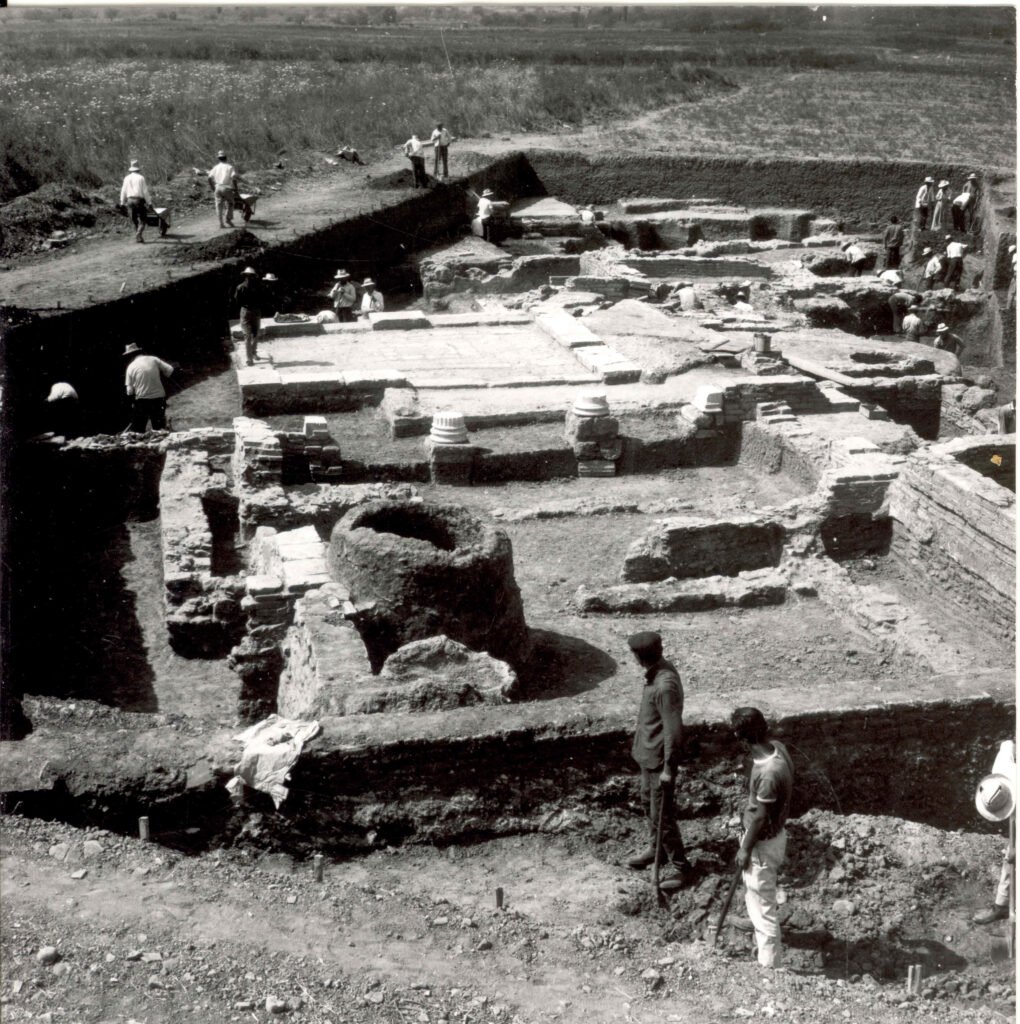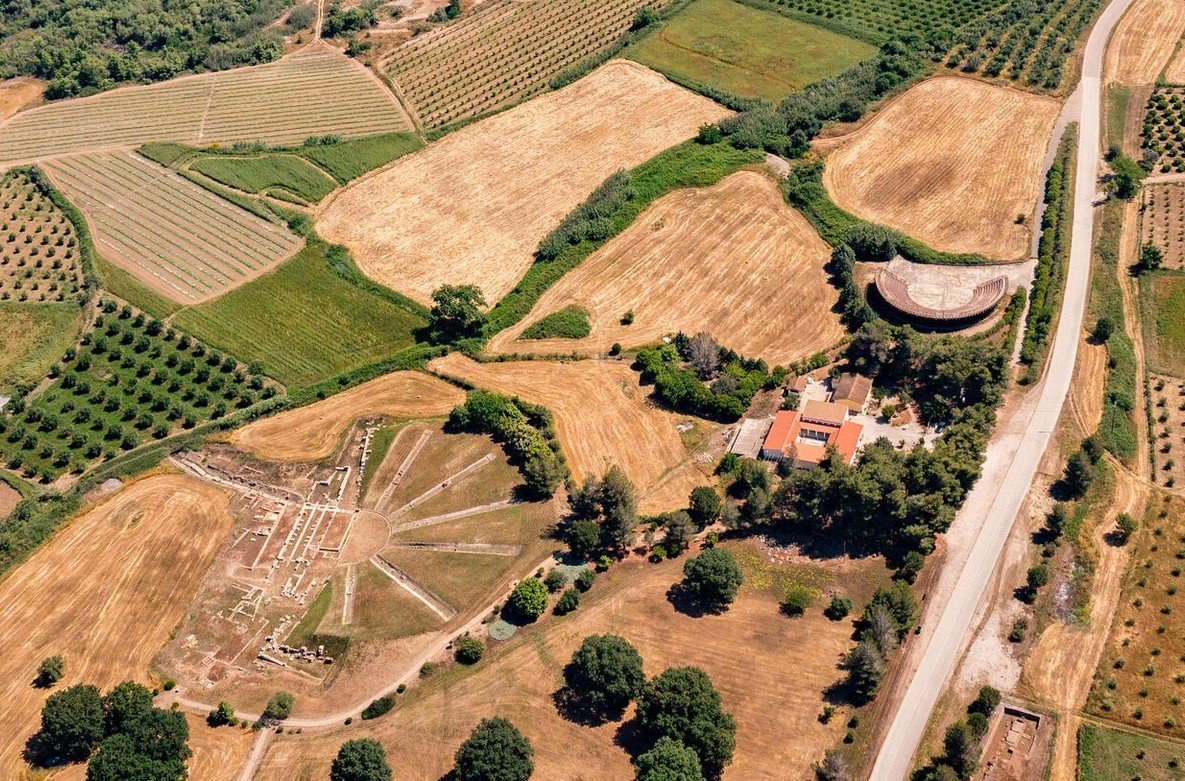PART D: salvage EXCAVATIONS IN ANCIENT ELIs for THE CONSTRUCTION OF THE PINEIoS DAM (1964-1970)
Pinios dam, irrigation network
The salvage excavations carried out in the context of the construction of the Pineios Dam brought to light highly significant evidence concerning the ancient city of Elis, substantially enhancing our understanding of its history and topography.
However, the implementation of this large-scale infrastructure project also had a considerable impact on the archaeological site, causing damage and to monuments and archaeological strata

the cause
The construction of the dam, combined with the development of the irrigation network, necessitated extensive salvage excavations, which, among other findings, revealed numerous cemeteries and other valuable archaeological remains.
The network’s route crossed the ancient city, revealing important archaeological finds.
salvage excavations
The excavations were carried out under the direction of the Ephors of Antiquities N. Gialouris, G. Papathanasopoulos and Th. Karagiorga.
In some cases, irrigation channels were relocated to preserve ancient finds. Part of the ancient reliques were destroyed.
results
A large part of the urban fabric, cemeteries, sanctuaries, mosques and workshops were revealed.
Rich movable finds from the archaic to the Roman period were found.
The importance of the city as a political, religious, sports and commercial center was demonstrated.
publications
The results of the survey were published in the “Archaeological Bulletin” and the “Archaeological Analects of Athens”. Studies were also published in various scientific publications.
importance of excavations
The irrigation canal, in combination with the provincial road Gastouni – Pinios Dam, divided the archaeological site, a condition that remains in force to this day, preventing its exploration and understanding.

